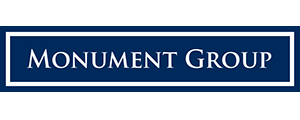Highlights from Monument Group’s recent investor lunch in London
There’s been no shortage of discussion about the private equity fundraising outlook for 2023. There’s the backdrop of economic uncertainty, volatility and potential recession, while LPs are overstretched and facing the denominator effect in their portfolios as the value of public markets holdings have tumbled. We recently sat down with more than 40 UK-based LPs of different sizes, representing pension plan sponsors, funds of funds, family offices and sovereign wealth funds, to discuss their investment priorities, private equity allocations and areas of focus for the year ahead.
We found that despite current market conditions, in general, our investors are not looking to rebalance their portfolios away from private equity. Overall they expect the returns from this and the next vintage of funds to be among the best performers for the asset class. But with capital tight, they are very focused on re-ups and there is little space to assess new relationships.
The denominator effect takes hold
There’s been much discussion in the industry about the denominator effect and how that’s taking hold. Anecdotally, we have heard that some larger investors have had their private equity allocations cut in half. So, it was interesting that the majority of LPs at our lunch expected their allocations to remain broadly similar, shifting by 5% or less in either direction, while just one in three expected to reduce their private equity allocations by more than 5%. This may be reflective of the LPs in attendance; for example, funds of funds – that don’t have that consideration at least short term – were well represented. That said, we were pleased to see allocations remaining reasonably steady for the majority.
Areas of focus
It came as no surprise that healthcare was seen as the single most attractive sector for our group of LPs, while interest in technology has plateaued. One in five LPs said that industrials was now the most appealing sector for them, which was in marked contrast to prior surveys when it was largely ignored by LPs.
In terms of investment themes, emerging managers, spin-outs and – not surprisingly in the current environment – distressed strategies were seen as representing the most exciting opportunities, while interestingly only one in five LPs found climate-related opportunities the most compelling theme.
Secondaries
The market for LP portfolio secondaries has increased steadily in recent years but is expected to be particularly strong this year, fuelled by denominator issues and the need for liquidity. Over half of those in attendance said they were contemplating a secondary sale this year, with many of those mentioning liquidity requirements as the primary driver. As a result, the secondaries market looks set to remain buoyant once the bid ask spread reduces.
What’s a GP to do?
For GPs, it’s without doubt a challenging fundraising environment and we’d advise that managers have to be pragmatic and realistic in their fundraising plans. As a rule, the very fast processes we’ve seen in recent years are a thing of the past and expectations of what a successful process looks like – and the commensurate effort that goes into it – will need to be reset.
GPs will also need to invest in their relationships and work closely with LPs to secure commitments, while ensuring their story; the strategy, team and – of course – performance, stacks-up. In declining re-ups for example, over half of the LPs in the room said that performance was the key consideration, but issues related to succession or team dynamics and the size of the fund were also identified as key contributing factors.
We might begin to see some innovation from GPs in the shape of fee breaks and first close discounts, but that will mainly serve to accelerate the fundraising timeline rather than attract a significant number of new investors.
We wouldn’t be surprised to see more GPs look to tap new pools of capital by turning to wealth managers and private banks or unlocking access to DC pension funds as the regulatory environment becomes more open to private capital for individual investors. For example, the UK government recently announced plans to relax rules around performance fees charged on DC pension schemes and reforms to the ELTIF structure in Europe will come into effect this year. The extent to which new sources of capital enter the market remains to be seen, but with existing sources of capital remaining constrained, GPs need to be well-organised and tenacious when it comes to fundraising.
